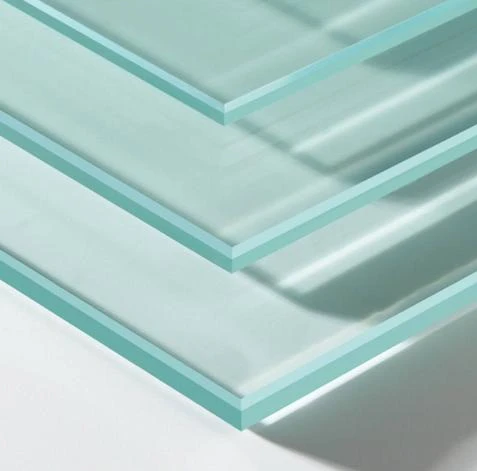The Advantages of Tempered Glass
Tempered glass, also known as toughened glass, is a type of glass that has been treated with heat and chemicals to increase its strength and safety. This process makes tempered glass an excellent choice for a variety of applications. In this article, we will explore some of the key advantages of tempered glass, highlighting why it is a popular choice in both residential and commercial settings.
The Advantages of Tempered Glass
Another major advantage of tempered glass is its safety features. In the event of breakage, tempered glass shatters into small, blunt pieces rather than sharp shards, significantly reducing the risk of injury. This property is particularly appealing in homes with children or in public places where the safety of patrons is a concern. The safety aspect of tempered glass also extends to its use in critical installations, such as glass railings and pool enclosures.
advantage of tempered glass
Additionally, tempered glass is highly versatile and can be customized for various applications. It can be manufactured in different thicknesses and sizes, allowing it to be used for anything from large windows to intricate decorative glass panels. This adaptability makes it suitable for both modern and traditional designs, catering to diverse aesthetic preferences. Furthermore, tempered glass can also be treated with tints, coatings, or patterns, giving designers and architects additional creative freedom.
Tempered glass also offers excellent thermal insulation properties. It is designed to withstand thermal stress, which allows it to be used in energy-efficient windows and facades. This insulation capability can lead to reduced energy costs and a more comfortable indoor environment. As buildings aim to achieve higher energy efficiency standards, the use of tempered glass is increasingly becoming a viable choice.
Lastly, tempered glass is environmentally friendly. Unlike other materials that may contain harmful substances, tempered glass is made from natural raw materials and can be recycled. This sustainability factor is becoming increasingly important in construction and design, as more individuals and companies strive to minimize their environmental footprint.
In conclusion, tempered glass is an outstanding material that offers numerous advantages, including enhanced strength, safety, versatility, thermal insulation, and environmental friendliness. Whether used in residential settings, commercial buildings, or decorative applications, tempered glass stands out as a reliable choice, making it a preferred option for architects, designers, and homeowners alike.
 Afrikaans
Afrikaans  Albanian
Albanian  Amharic
Amharic  Arabic
Arabic  Armenian
Armenian  Azerbaijani
Azerbaijani  Basque
Basque  Belarusian
Belarusian  Bengali
Bengali  Bosnian
Bosnian  Bulgarian
Bulgarian  Catalan
Catalan  Cebuano
Cebuano  Corsican
Corsican  Croatian
Croatian  Czech
Czech  Danish
Danish  Dutch
Dutch  English
English  Esperanto
Esperanto  Estonian
Estonian  Finnish
Finnish  French
French  Frisian
Frisian  Galician
Galician  Georgian
Georgian  German
German  Greek
Greek  Gujarati
Gujarati  Haitian Creole
Haitian Creole  hausa
hausa  hawaiian
hawaiian  Hebrew
Hebrew  Hindi
Hindi  Miao
Miao  Hungarian
Hungarian  Icelandic
Icelandic  igbo
igbo  Indonesian
Indonesian  irish
irish  Italian
Italian  Japanese
Japanese  Javanese
Javanese  Kannada
Kannada  kazakh
kazakh  Khmer
Khmer  Rwandese
Rwandese  Korean
Korean  Kurdish
Kurdish  Kyrgyz
Kyrgyz  Lao
Lao  Latin
Latin  Latvian
Latvian  Lithuanian
Lithuanian  Luxembourgish
Luxembourgish  Macedonian
Macedonian  Malgashi
Malgashi  Malay
Malay  Malayalam
Malayalam  Maltese
Maltese  Maori
Maori  Marathi
Marathi  Mongolian
Mongolian  Myanmar
Myanmar  Nepali
Nepali  Norwegian
Norwegian  Norwegian
Norwegian  Occitan
Occitan  Pashto
Pashto  Persian
Persian  Polish
Polish  Portuguese
Portuguese  Punjabi
Punjabi  Romanian
Romanian  Russian
Russian  Samoan
Samoan  Scottish Gaelic
Scottish Gaelic  Serbian
Serbian  Sesotho
Sesotho  Shona
Shona  Sindhi
Sindhi  Sinhala
Sinhala  Slovak
Slovak  Slovenian
Slovenian  Somali
Somali  Spanish
Spanish  Sundanese
Sundanese  Swahili
Swahili  Swedish
Swedish  Tagalog
Tagalog  Tajik
Tajik  Tamil
Tamil  Tatar
Tatar  Telugu
Telugu  Thai
Thai  Turkish
Turkish  Turkmen
Turkmen  Ukrainian
Ukrainian  Urdu
Urdu  Uighur
Uighur  Uzbek
Uzbek  Vietnamese
Vietnamese  Welsh
Welsh  Bantu
Bantu  Yiddish
Yiddish  Yoruba
Yoruba  Zulu
Zulu 

